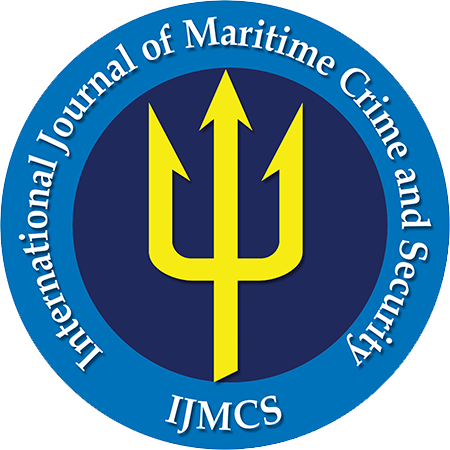About IJMCS
The International Journal of Maritime Crime and Security (IJMCS) is the first high-quality multi/interdisciplinary journal devoted to the newly identified field and academic discipline of maritime security and to the study of maritime crime. The latter has been neglected, as the scientific study of crime has remained essentially landlocked.
The Journal will cover the following, broadly constructed and interpreted, disciplines as they relate to maritime security: economics, environmental studies, global governance studies, anthropological and cultural studies, human factors and psychology, security, criminology and crime science, cyber security, international and national law (Maritime Law, Law of the Sea and National Jurisdictions), political and policy perspectives, strategic security and war studies, naval and maritime history as they relate to current issues, maritime crime, including cyber-crime, fraud, piracy and armed robbery at sea, Illegal, Unregulated and Unreported (IUU) Fishing, smuggling, people trafficking, illegal immigration, stowaways and pollution, disaster management and resilience at sea and in littoral areas. ‘Maritime Security’ includes port facility, offshore platform and undersea resource extraction security – not just ships.
Mission Statement of the Journal
The International Journal of Maritime Crime & Security (IJMCS) will be the first high-quality multi/interdisciplinary journal devoted to the newly identified field and academic discipline of maritime security and to the study of maritime crime.
Journal Aim (s) & Objectives
To fill the need for a high-quality multi/interdisciplinary maritime crime and security journal, providing a high-level forum for papers that draw together different strands and disciplines, which are not catered for sufficiently by existing literature.
IJMCS will be a high-quality venue with the following aims:
- Publish top-level articles;
- Publish ‘signposting’ articles or statements of the shape of the discipline;
- Provide a hub around which the interdisciplinary maritime security community will form;
- Make a commitment to provide quality empirical research, and to do so in ways Which best support researchers across the field;
- Address the need for authoritative, foundational, inter/multidisciplinary research; and
- Publish research articles and review papers that are grounded in real-world implications and solutions.
To these ends, the IJMCS will seek to:
- make a significant and formative contribution towards the human understanding of security in the maritime domain;
- make an instrumental and formative contribution towards the creation and development of a rigorous, scholarly and genuinely interdisciplinary approach to the study of maritime security and its interrelationship with maritime policy and maritime safety;
- stimulate and inform interdisciplinary research and teaching in the sphere of maritime security; and
- Develop ideas and stimulate debate in order to contribute to a sustained cycle of improvement in the quality, relevance, and effectiveness of maritime security governance, products, and services.
The study of maritime crime and security is an international growth area, while criminology, crime science, and policing studies are a burgeoning area for research which has not acknowledged the maritime dimension, just as maritime studies have neglected crime. They seem distinct areas but are inextricably linked and highly newsworthy and work together. The IJMCS is what is needed to bridge the gap and will support the publication of research within these fields as well as the creation of a new interdisciplinary community.
Readership of this Journal
The target market across the English-speaking world (English is the international language of the sea) for this journal comprises:
- Senior professionals in the maritime and maritime security industries
- Senior professionals, policymakers in government and international agencies, including International Maritime Organization (IMO), coastguard, marine police, Port Security and Armed Forces
- University and research institute students and staff


